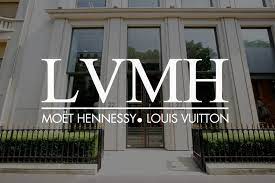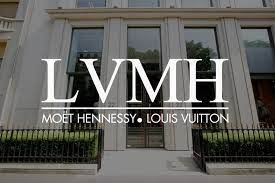
A powerful, months-long post-pandemic spending spree may be coming to an end, according to the first-quarter sales report from LVMH, which revealed that luxury customers in the United States are reducing their purchases of high-end clothing and leather items.
The most valuable listed firm in Europe saw its shares rise nearly 5% to all-time highs in early trade on Thursday after reporting a 17% increase in sales driven by a strong recovery in China following the lifting of COVID-19 lockdowns.
US revenue increased by 8% during the quarter, but the finance director of the French corporation, Jean-Jacques Guiony, claimed that the less upscale Sephora beauty chain was largely to blame.
"For the rest, the business is slowing down a bit," he said, citing softer demand for fashion and leather goods - where sales to U.S. shoppers both at home and abroad were "flattish" - as well as jewellery.
"Maybe interest rate rises are taking their toll on spending," Guiony said.
American consumers, who emerged from lockdowns with cash and a desire to splurge on designer labels, have been riding a wave of strong demand for European names, including LVMH's Louis Vuitton and Dior, as well as Chanel and Hermes.
The U.S. market contributed 27% of LVMH's total revenue last year, with sales up 15% as consumers ignored rising prices and volatile markets.
Due to the high demand, numerous labels, including rivals Hermes and Gucci, owned by Kering, opened additional retail locations in large malls including American Dream in additional Jersey, South Coast Plaza in California, and in towns like Austin, Texas.
However, there are hints that the shopping frenzy may be tapering down.
According to Citi credit card statistics released this week, fewer Americans spent big on luxury goods in March, which resulted in the lowest monthly rate for almost three years.
Younger consumers are currently more pressured by rising prices than older generations with greater earnings because they used savings during lockdowns, according to Citi analysts.
According to a recent report from HSBC, the United States is "the biggest bear story" in the luxury market, albeit it was noted that concerns of a sudden decline may be overstated.
"(The) softer U.S. consumer is an important caution point," said Oliver Chen, an analyst with Cowen, flagging possible risks for Tapestry (TPR.N) and Versace owner Capri (CPRI.N) due to their exposure to the handbags segment.
As a result of a significant price hike intended to offset rising energy and glass costs, LVMH noticed a specific downturn in demand for its Hennessy cognac in the United States, according to Guiony.
He continued by saying that the business is being cautious with pricing hikes this year, not just for cognac.
With the upcoming reopening of the New York flagship store following a three-year restoration, LVMH will also shortly highlight a large investment in Tiffany, a U.S. jewelry company that it acquired for $16 billion in 2021.
It is anticipated that the store, which before it closed for renovations represented 10% of Tiffany sales, will reopen by the end of the month.
"It's probably the most emblematic luxury store in the world," said Guiony.
In a similar manner to how it approached Bulgari, he claimed that increasing Tiffany's sales through new product development, shop expansion, and renovation would take precedence, with margin expansion likely starting later.
According to Elliott Savage, portfolio manager of the American fund YCG Investments, which owns shares of LVMH and other luxury brands, a near-term decline in the U.S. luxury market could provide dominating players with an opportunity to gain market share.
"It could actually end up being better (for LVMH) in terms of strengthening their position," Savage told Reuters.
According to Jefferies, LVMH's luxury divisions, which include apparel, leather goods, watches, and jewelry, have been outpacing competitors lately, virtually increasing their worldwide market share to 22% from 12% between 2018 and 2023.
Many high-end brands continue to go upmarket and introduce new services for their wealthiest customers, who are thought to be more robust to economic downturns.
This week, Gucci inaugurated a high-end clientele salon in Melrose Place, Los Angeles, where evening attire fit for the red carpet is displayed on mirrored pedestals. The group intends to launch nine additional, comparable boutiques, including ones in Shanghai and New York.
(Source:www.usnews.com)
The most valuable listed firm in Europe saw its shares rise nearly 5% to all-time highs in early trade on Thursday after reporting a 17% increase in sales driven by a strong recovery in China following the lifting of COVID-19 lockdowns.
US revenue increased by 8% during the quarter, but the finance director of the French corporation, Jean-Jacques Guiony, claimed that the less upscale Sephora beauty chain was largely to blame.
"For the rest, the business is slowing down a bit," he said, citing softer demand for fashion and leather goods - where sales to U.S. shoppers both at home and abroad were "flattish" - as well as jewellery.
"Maybe interest rate rises are taking their toll on spending," Guiony said.
American consumers, who emerged from lockdowns with cash and a desire to splurge on designer labels, have been riding a wave of strong demand for European names, including LVMH's Louis Vuitton and Dior, as well as Chanel and Hermes.
The U.S. market contributed 27% of LVMH's total revenue last year, with sales up 15% as consumers ignored rising prices and volatile markets.
Due to the high demand, numerous labels, including rivals Hermes and Gucci, owned by Kering, opened additional retail locations in large malls including American Dream in additional Jersey, South Coast Plaza in California, and in towns like Austin, Texas.
However, there are hints that the shopping frenzy may be tapering down.
According to Citi credit card statistics released this week, fewer Americans spent big on luxury goods in March, which resulted in the lowest monthly rate for almost three years.
Younger consumers are currently more pressured by rising prices than older generations with greater earnings because they used savings during lockdowns, according to Citi analysts.
According to a recent report from HSBC, the United States is "the biggest bear story" in the luxury market, albeit it was noted that concerns of a sudden decline may be overstated.
"(The) softer U.S. consumer is an important caution point," said Oliver Chen, an analyst with Cowen, flagging possible risks for Tapestry (TPR.N) and Versace owner Capri (CPRI.N) due to their exposure to the handbags segment.
As a result of a significant price hike intended to offset rising energy and glass costs, LVMH noticed a specific downturn in demand for its Hennessy cognac in the United States, according to Guiony.
He continued by saying that the business is being cautious with pricing hikes this year, not just for cognac.
With the upcoming reopening of the New York flagship store following a three-year restoration, LVMH will also shortly highlight a large investment in Tiffany, a U.S. jewelry company that it acquired for $16 billion in 2021.
It is anticipated that the store, which before it closed for renovations represented 10% of Tiffany sales, will reopen by the end of the month.
"It's probably the most emblematic luxury store in the world," said Guiony.
In a similar manner to how it approached Bulgari, he claimed that increasing Tiffany's sales through new product development, shop expansion, and renovation would take precedence, with margin expansion likely starting later.
According to Elliott Savage, portfolio manager of the American fund YCG Investments, which owns shares of LVMH and other luxury brands, a near-term decline in the U.S. luxury market could provide dominating players with an opportunity to gain market share.
"It could actually end up being better (for LVMH) in terms of strengthening their position," Savage told Reuters.
According to Jefferies, LVMH's luxury divisions, which include apparel, leather goods, watches, and jewelry, have been outpacing competitors lately, virtually increasing their worldwide market share to 22% from 12% between 2018 and 2023.
Many high-end brands continue to go upmarket and introduce new services for their wealthiest customers, who are thought to be more robust to economic downturns.
This week, Gucci inaugurated a high-end clientele salon in Melrose Place, Los Angeles, where evening attire fit for the red carpet is displayed on mirrored pedestals. The group intends to launch nine additional, comparable boutiques, including ones in Shanghai and New York.
(Source:www.usnews.com)














